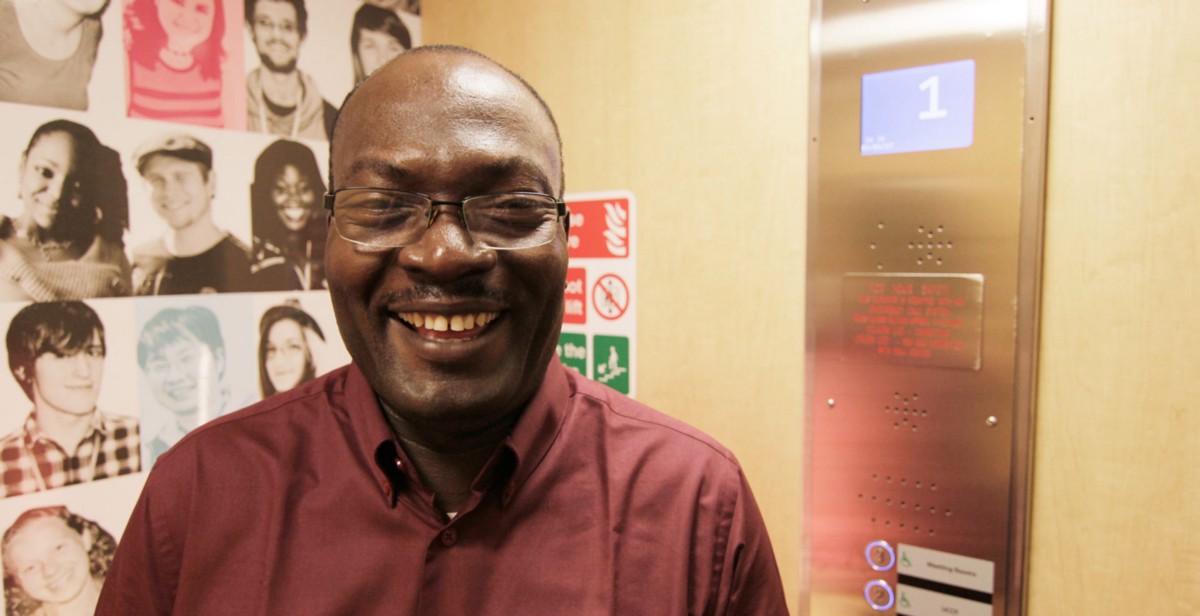
In an elevator with: Kehinde Ojo
Kehinde Ojo is Program Director for the IFES Indigenous Support Development program, started in 2011 to help train and equip national movements to develop support partnerships with graduates, churches and business. As a result, a number of national movements have been able to increase their staff teams to better support student ministry in their country.
We took a few minutes with Kehinde to find out more about him and the ministry he leads.
How did you come to faith?
I was born in a nominal Christian family and attended church from a very young age, right up until I went to university. It wasn’t until my fourth year studying electronics engineering that I made a commitment to Jesus.
I had close contact with Christian students and I wondered what was different about them. Soon I discovered they were going to a NIFES Christian Union, which I then started attending. I could soon see the difference between religion and relationship and became a follower of Jesus.
What does your life in Nigeria look like?

I have been married for 22 short years to Adeola, and we’ve got three children: Samuel (21), David (18), and Deborah (8). Samuel has graduated from university in economics and now has to complete a year of national youth service. We live in Abuja, but I grew up in the south-west of Nigeria, around two hours’ drive from Lagos.
When I was a student I played in the volleyball team, while also participating in hockey, table tennis, and basketball. I love to read, too.
In Nigeria, around 45% of the population is Christian, with approximately the same percentage being Muslim.
How long have you been involved in student ministry?
I did my national youth service with NIFES in 1991 and worked with students in colleges. My plan then was to give one or two years of voluntary service. That was 26 years ago, and I’m still involved in student ministry!
What are some of the opportunities and challenges in your role?
We currently run programs in 15 countries across five different IFES regions. We want to develop a sense of ownership of national movements in which locals are involved in developing support and resources. This helps provide a sense of accountability, as money raised locally is often better managed, and also brings a greater sense of fulfillment.
However, when you are dealing with money, you are dealing with different cultures, and different theological perspectives of money and stewardship.
It has been exciting to see the impact of this work in regions like Francophone Africa, which previously suffered from high levels of staff attrition. When there are no resources, people will naturally need to find other things to do. But in the last year, two national movements in this region have each taken on six new staff, in countries which normally struggle with raising support. The training we have been able to provide is clearly helping.
How can we pray for you and your work?
Pray that people will continue to see raising support being about more than just money. It’s about all kinds of aspects that God gives us — prayer, resources, and people.
Pray for recent training that has taken place in Zimbabwe, Mauritius, and French Guyana.
And pray for provision of resources that will enable IFES regions to employ people to develop local support for their national movements.
